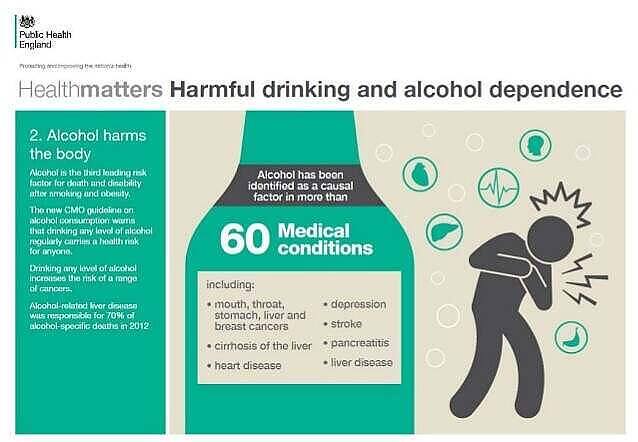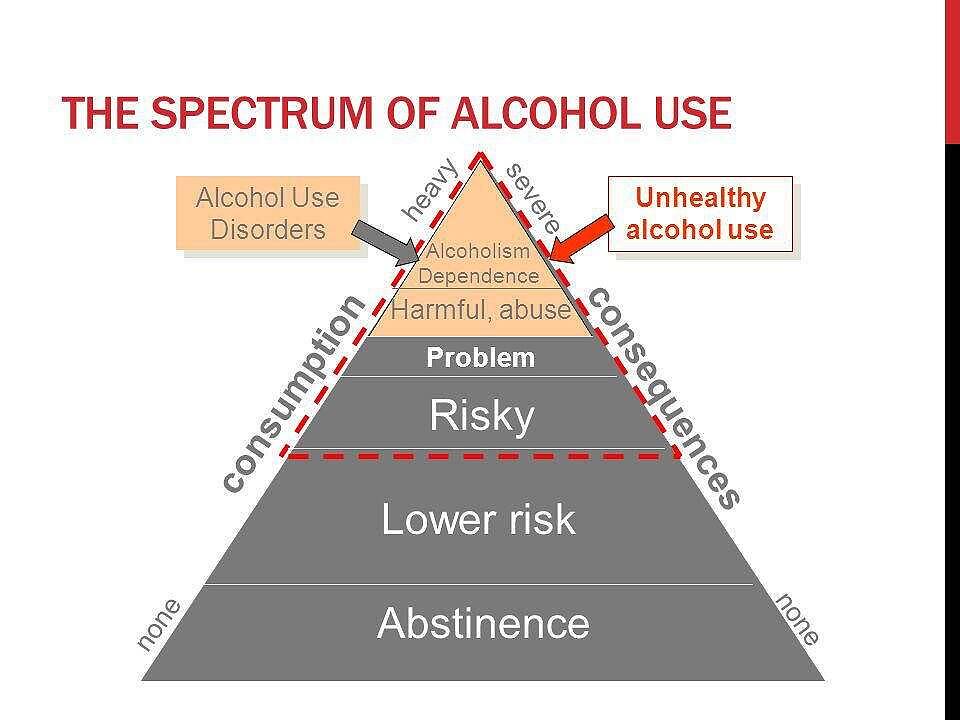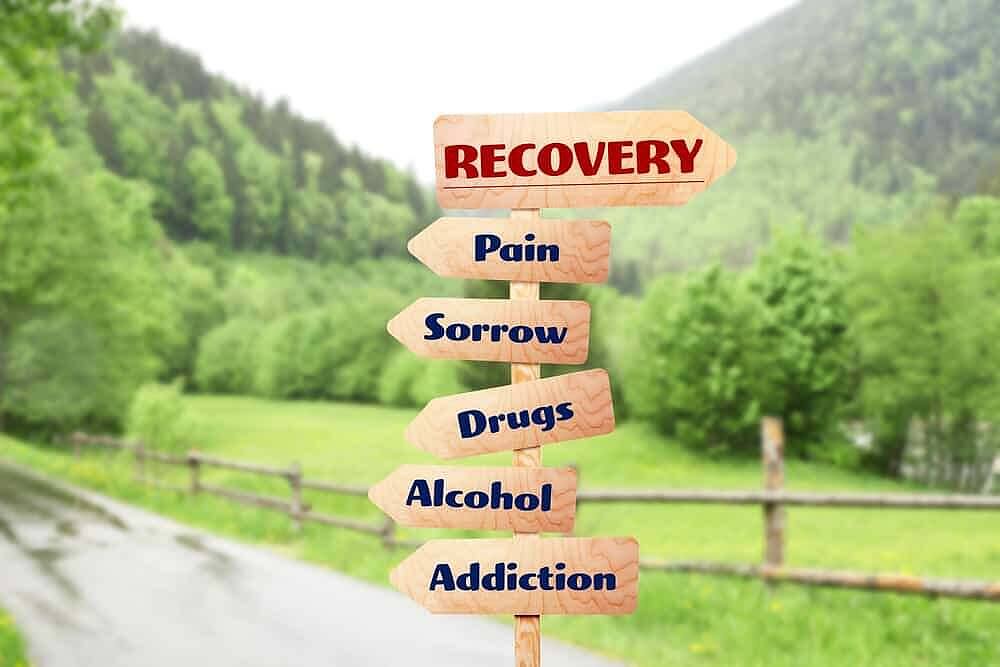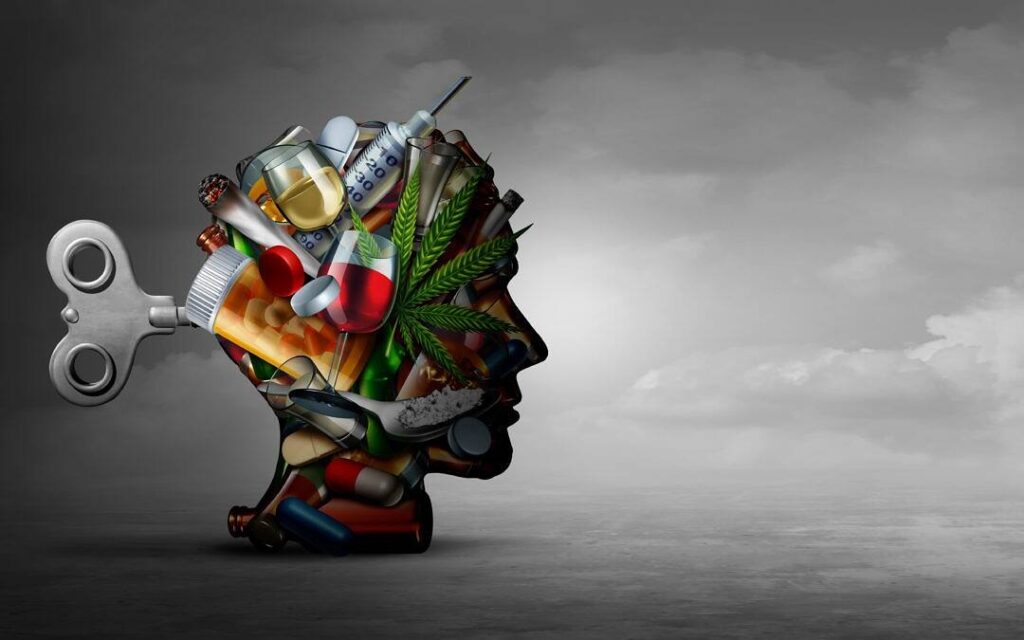Alcohol is the most widely used drug in the UK. Many might not view alcohol as a drug, mainly because it is a) legal and b) socially acceptable. However, this does not alter the fact that alcohol’s powerful psychoactive and toxic effects can cause untold damage to the body and brain when abused.
Here, Detox Plus UK looks at the risks of alcohol abuse and why some people who abuse alcohol develop alcohol dependence and full-blown alcoholism. We also look at the causes of alcohol abuse and the signs to identify an alcoholic.

What is alcohol abuse?
Alcohol abuse is when a person drinks excessive amounts of alcohol or misuses it to achieve the effects of acute intoxication.
There are many ways in which a person can abuse alcohol. It is not always as simple as ‘drinking too much. For example, a person may mix alcohol with drugs or prescription medications to increase alcohol’s effects.
All forms of alcohol abuse are considered dangerous and carry considerable health risks. When a person regularly abuses alcohol, they may be diagnosed with an Alcohol Use Disorder (AUD). Alcohol Use disorders often become progressively worse over time and without treatment. It is worth speaking to a healthcare professional if you are worried about your own or someone else’s drinking habits.
Alcohol abuse and alcohol dependence are both categorised as psychiatric illnesses and have been merged under the criteria for diagnosing the presence of an AUD in the DSM-5.
The DSM-5 (Diagnostic and Statistical Manual of Mental Disorders, Edition 5) is a manual used by healthcare professionals to diagnose and name mental health and psychiatric conditions to be effectively treated. 1
Definitions of alcohol abuse
One common form of alcohol abuse (also referred to as binge drinking and hazardous drinking) is defined by drinking above the Chief Medical Officers Low-risk drinking guidelines. An example of binge drinking would be a person consuming vast amounts of alcohol within one drinking episode.
The guidelines for safer alcohol consumption are the same for men and women in the UK, they state :
- To keep health risks related to alcohol to a low level, it is advised that men and women should not drink more than 14 units of alcohol per week .regularly
- If you regularly drink as much as 14 units per week, it is advised to spread your units evenly over 3 or more days.
- If you have 1 or 2 heavy drinking episodes a week, your risk of long-term illness, accidents, injuries, and death increases.
- The more alcohol you drink, the higher your risk of developing a range of alcohol-related health problems, including cancer of the mouth, throat and breast,
- If you want to reduce the amount you drink, it is suggested to have several alcohol-free days each week.
- It is advised that all alcohol should be avoided for pregnant and breastfeeding women as there is no safe amount.
A binge-drinking episode is diagnosed when alcohol consumption brings their blood alcohol concentration (BAC) to above 0.08%.
- For men, this usually translates to more than 5 standard drinks in one drinking episode.
- For women, this usually translates to more than 4 standard drinks in one drinking episode.
Women are more sensitive to the effects of alcohol due to their biological make-up. This is why it is recommended that women consume less alcohol than men.
What are alcohol abuse and alcoholism?
From a medical point of view, alcohol dependence and alcoholism could be considered the same. With alcohol abuse, a person is considered to have an element of choice or control still.
A person who is alcohol dependent will need to consume alcohol to avoid alcohol withdrawal symptoms; they have no choice, not unless they want to risk becoming severely ill.
Alcohol withdrawal can be a medical emergency. Seek medical help right away if someone experiences:
- seizures
- severe vomiting
- hallucinations
- fevers
An alcoholic differs from a person with only an alcohol dependence, as once safely detoxed, the ‘craving’ for alcohol returns and is more than just a physical alcohol need. Once all traces of alcohol have left an alcohol-dependent or alcohol abusers system, they should not (theoretically) crave alcohol. However, with alcoholism, even free from all alcohol, they will still experience the phenomenon of craving.
Craving in an alcoholic manifests in two ways, as opposed to just the one physical way of an alcohol-dependent sufferer. Once a person afflicted with alcoholism takes any alcoholic drink, they frequently lose control of the amount they consume due to their body craving more. The more they drink, the more they crave! This is where the saying, ‘A thousand drinks is never enough, and one is too many, starts to make a lot of sense.
The second way alcohol cravings manifest in a person with alcoholism is experiencing compulsive urges to seek and drink alcohol (over which they will have little or no control). These ‘cravings’ happen even when a person with alcoholism has managed to stop drinking and is alcohol-free and want and desire to remain sober with all their heart.
This is why the DSM-5 has added craving as a separate criterion under Alcohol Use Disorders. The severity of an AUD, its complexity and treatment, depending on whether a person’s problem with alcohol involves them experiencing the criterion of ‘craving’ and which of the two forms it presents.
Who suffers from alcohol cravings?
Cravings are medically recognised as a physical need and as a psychological compulsion. When the two exist together, a person is considered to be at the most severe end of the spectrum of alcohol use disorders. They will be prone to repeated relapses of their condition and require intensive treatment to help them get well.
Suffering from a psychological craving for alcohol is a recognised characteristic. Regardless of where a person with alcoholism registers on the spectrum of Alcohol Use Disorders, their condition will become progressively worse over time without treatment.
A person who abuses alcohol could also potentially suffer from alcoholism but has not yet reached the stage where their condition is considered critical.
What is alcohol addiction?

Source: Public Health England
Alcohol abuse and alcoholism is a chronic condition that develops in the brain. Not everyone understands that it is both a physiological and psychiatric condition for which there is no cure.
The changes in the brain through alcohol abuse are long-lasting and cannot be fully reversed by any known scientific or medical means.
Research has proven that the brain of an alcoholic is substantially different to a healthy brain. Alcohol abuse and alcoholism cause damaging and lasting effects on the brain’s reward centre, impulse control centre and neurological pathways. It has also been found that alcohol has the power over a person to hijack key brain regions that are responsible for keeping us alive and well 2
Alcohol abuse and alcoholism is a progressive, long-lasting disorder, meaning that the damage to the brain will only worsen with continued exposure to alcohol. At its worst, alcohol can destroy some of the vital regions of the brain, leading to the development of the devastating and chronic neurological disorder – Wernicke’s Korsakoff’s Syndrome (commonly referred to as ‘wet brain’)
It is estimated that as much as 50% of the risk for developing alcohol addiction is genetic. Other factors that can contribute are environmental factors (including early exposure to alcohol and/or childhood neglect and abuse), mental health illnesses such as depression and anxiety, and long-term exposure to stress or trauma (all of which have been shown to change the brain, making it more vulnerable and at risk of addiction) 3
In England alone, there are an estimated 586,780 dependent drinkers 4. Even more worryingly, it is estimated that only 18 per cent of alcohol-dependent drinkers access treatment for their condition 5
A person does not have to drink to excess every night to develop an alcohol dependency. The signs of alcohol abuse and alcoholism can present themselves in various ways. Many sufferers do not even recognise when their drinking has become a serious problem. For instance, a person may drink only on weekends but heavily binge on it and/or mix alcohol with cocaine. Another example of problematic drinking is drinking every night to enable sleep. Both of these examples have the potential to cause both short-term and long-term consequences.
If a person drinks excessively and frequently for too long, it may come to the point where they are incapable of enjoying themselves without alcohol. This is one of the devastating effects and signs of alcohol abuse and alcoholism. The reward centre in the brain becomes so badly damaged that an alcoholic becomes unable to feel any pleasure unless they are heavily intoxicated. Even then, the brain eventually becomes so tolerant of alcohol that it no longer responds by releasing rewarding chemicals. This is why most who suffer from alcohol abuse and alcoholism develop severe anxiety, insomnia, and depression.
Most people who drink heavily think they still choose whether they stop all alcohol or cut down. When they actually attempt to regain control over their drinking and find they cannot, they discover they have a serious problem.
Physical symptoms of alcohol abuse

Habitually abusing alcohol will increase your chances of developing a serious illness. Excessive alcohol consumption is associated with numerous serious health complications, including pancreatitis, liver damage, stroke, and alcohol-related cancers 6
A common form of alcohol abuse is drinking every evening before bed. Many who do this drink relax and fall asleep quicker. However, this pattern of nightly drinking can easily turn into a vicious cycle. The brain comes to rely on alcohol to enable sleep and to deal with stress.
Drinking before bed can lull you into a false sense of security that you are getting enough sleep. Whilst you may well fall asleep more quickly, the quality of your sleep will be severely impaired. Excessive alcohol use alters your sleep pattern causing poor quality and frequently interrupted sleep. You are likely to wake up feeling like you have hardly slept and feel lethargic well into the next day 7
Alcoholism often results from prolonged periods of alcohol abuse. If this happens, alcohol quite literally takes over your life. It becomes all-consuming daily. You will feel powerless over controlling your alcohol intake and experience constant thoughts of the next drink.
Spotting the signs of alcohol abuse can assist you in getting the correct help and support.
Signs of alcohol abuse include:
- Frequently drinking above the Chief Medical Officers safe drinking guidelines of 14 units of alcohol per week
- Impacting relationships
- Causing harm or injury
- Having a negative effect on your quality of life
- Mixing alcohol with prescription drugs or illicit drugs
- Binging on alcohol to the point that you have little recollection of events that took place whilst intoxicated
- Regularly embarrassing yourself or upsetting work colleagues, family, or friends with your antics whilst intoxicated
- Drinking to the point that it takes you the entire following day to physically recover from alcohols effects
- Drinking to the point of suffering alcohol poisoning, ending up in a hospital, or getting into trouble with the police.
Arresting alcohol abuse in the early stages can be lifesaving, and it prevents it from developing into something even more sinister and life-threatening.
What causes someone to become an alcoholic?
What causes someone to become an alcoholic is not always clear. Ongoing research reveals new developments into the different causes of alcohol abuse and alcoholism all the time. There are, however, some recognised risk factors that have been identified as making a person more predisposed to becoming an alcoholic. The more risk factors a person has, the higher their chance of developing health problems.
Causes of alcohol abuse and Alcoholism include:
- Environmental factors – including poverty, redundancy, peer pressure, belonging to a family where alcohol is frequently abused, coming from a broken home, or a home where there was poor parenting
- Genetics – alcoholism often runs in families. It has been found that certain genetic variants are more predisposed to developing an addiction
- Prolonged exposure to stress (such as dealing with a relationship breakdown or stress at work)
- Suffering unresolved trauma, childhood abuse or neglect
- Early exposure to alcohol and use of alcohol from a young age – The human brain continues to develop until the age of 25. Whilst it is still developing, the brain is more vulnerable to damage caused by exposure to chemicals and toxins contained within alcohol and drugs
- Suffering from mental health or psychiatric illness and not seeking appropriate treatment – Those that suffer from mental health problems are more likely to self-medicate with alcohol or substances to relieve their symptoms temporarily 8
Before becoming addicted to alcohol, a person will develop alcohol tolerance. This means that the same amount of alcohol used to get them drunk will no longer have the desired effect.
Concerned family and friends often try to help them realize their drinking is out of control, even though they might not believe it.
Looking back on your own drinking history, have you had to drink increasing amounts of alcohol, stronger varieties of alcohol, or mix alcohol with drugs, to feel alcohol’s desired effects? If so, then this is a sign that you could potentially suffer from alcoholism. Couple alcohol tolerance with frequent alcohol abuse, and you really do have a cause for concern.
Alcohol treatment & rehab

If you are ready to say goodbye to alcohol, you can choose to undergo alcohol rehabilitation treatment. Alcohol treatment generally consists of a bespoke medical Alcohol detox carried out by qualified staff within a residential detox clinic. This is the first stage in making a full and lasting recovery.
During alcohol detox, highly skilled and caring staff will constantly monitor you, delivering light and supportive therapies to aid the detoxification process. They will also ensure that your medical and nutritional needs are met to help your body recover at its optimum speed and capacity.
Once your prescription detox is complete and your brain and body are clear of alcohol’s toxins, you are ready for the second stage in your treatment – alcohol rehab.
Alcohol rehabilitation looks different for everyone, as everyone is unique with varying medical, social, behavioural and psychological treatment needs. Before starting your detox, you will have been comprehensively assessed by a multidisciplinary team of treatment professionals. Together, they will form an evidence-based treatment plan that covers all aspects of your care.
Doctors sometimes prescribe medications to decrease the symptoms of withdrawal. Some medications can help you quit drinking by blocking the feeling of intoxication or making you feel sick when alcohol enters your body. Medication can also help reduce cravings.
Effective treatment incorporates many different components to ensure that you recover physically, psychologically, socially and emotionally. In essence, we ensure you are treated as a whole person, not just for physical addiction to alcohol.
Counselling, medications, behavioural modification, relapse prevention and holistic therapies are brought together under one roof to ensure maximum impact within a relatively short time. This has proven to be the best way to keep our patients motivated and engaged throughout the entire process. Any deep-rooted issues that you have will be safely explored and healed with the assistance of a fully qualified counsellor. You will also receive continued monitoring and regular care plan reviews. This way, we ensure you are receiving the best treatment and care at all times of your stay.
Before completing rehab treatment for an alcohol problem, your third stage of recovery will be prepared. Here is a comprehensive discharge plan for you will follow, including valuable recommendations and resources for you to connect with. You will also be invited to attend regular aftercare sessions, a safe and confidential space for you to discuss any issues and gain advice on overcoming recovery challenges.
Our recommended CQC alcohol rehabs teach and instil essential recovery maintenance to all patients, including managing your emotions, dealing with urges to drink, implementing healthy boundaries, self-care, developing healthy relationships, personal growth and coping strategies, all of which are essential in maintaining a healthy and balanced recovery from alcohol.
Suffering from alcohol abuse and alcoholism doesn’t need to be the end. Making the right choices and asking for help can, in fact, be pivotal to a new beginning of an infinitely healthier, happier and more productive way of life.
Call Detox Plus UK to seek help if you’re concerned about having a relapse for a free and confidential assessment of your or a loved one’s personal treatment needs.
Related Topics
Can You Drink Alcohol While on Naproxen?
What Happens if I Drink Alcohol Whilst Taking Macrobid?
References:
- Alcohol use disorder: A comparison between the DSM IV and DSM-5 https://www.niaaa.nih.gov/publications/brochures-and-fact-sheets/alcohol-use-disorder-comparison-between-dsm
- Biology of addiction- Drugs and alcohol can hijack your brain https://newsinhealth.nih.gov/2015/10/biology-addiction
- American Psychological Centre-APC https://www.apa.org/topics/substance-use-abuse-addiction
- Number of Alcohol dependent people in England – https://www.gov.uk/government/publications/alcohol-dependence-prevalence-in-england
- Alcohol treatment in England Statistics https://fingertips.phe.org.uk/public-health-dashboard-ft#page/11/gid/1938133154/pat/6/par/E12000006/ati/102/are/E10000015/iid/93011/age/168/sex/4
- Alcohol and cancer facts – https://www.cancerresearchuk.org/about-cancer/causes-of-cancer/alcohol-and-cancer
- Alcohol and sleep https://www.sleepfoundation.org/nutrition/alcohol-and-sleep
- Alcohol use disorder genetics – https://medlineplus.gov/genetics/condition/alcohol-use-disorder/#causes



